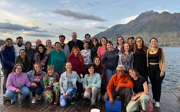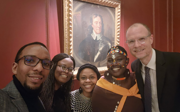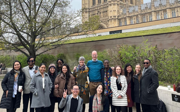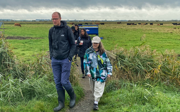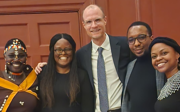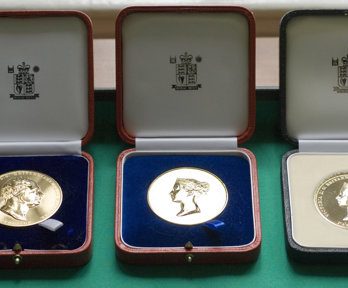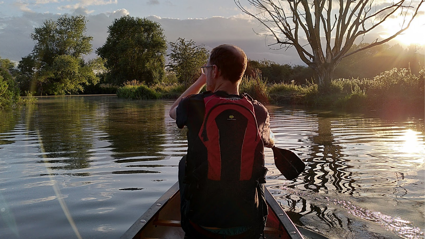
Q&A with Professor Chris Sandbrook
Read our interview with 2025 Cuthbert Peek recipient, Professor Chris Sandbrook.
Professor Chris Sandbrook is the recipient of the Cuthbert Peek Award for advancing geographical knowledge of human impact on the environment through contemporary methods.
What role do you do now and how would you describe your work?
"I am the Director of the Cambridge Masters in Conservation Leadership; a one year course for people working in conservation from all around the world. Students are taught leadership and management skills by staff from the Cambridge Conservation Initiative – a partnership of the University of Cambridge and ten international conservation charities.
"I have just taken on an additional role as the Director of the University of Cambridge Conservation Research Institute, in which I will be working to promote collaborative conservation research across disciplines and sectors.
"I am based in the David Attenborough Building, home to over 500 conservation researchers and practitioners. It is a very exciting place to work!"
What did you want to be, or where did you want to work, when you were a teenager? How did you get into this field of work?
"I really wasn’t thinking about a career in academia or conservation as a teenager. I loved spending time in nature but that was it. I got interested in conservation as an undergraduate studying zoology in Cambridge.
"I then began to realise that conservation is about people, and had the good fortune to attend some human geography lectures that really shaped my thinking. Fast forward twenty-five years and I now give those lectures!"
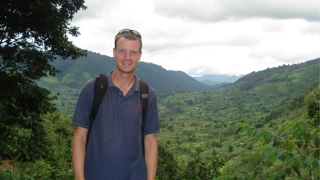
What has been the highlight of your career, regardless of how big or small, so far?
"I absolutely love seeing former students going on to achieve great things and feeling that I played some small part in their success. We have former students running national parks, working for UN agencies, representing their governments in international negotiations and in charity leadership, among many others.
"I particularly admire those who work at the very local level, making a difference for people and nature through place-based efforts."
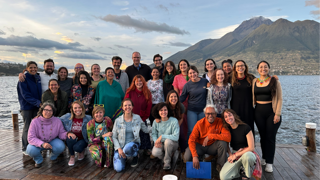
What projects are you working on right now?
"I am trying to encourage the ethical use of technology in conservation, including monitoring devices (like camera traps and drones) that can infringe the rights of local residents, and new tools like generative AI.
"I am also leading a project that is looking at how to achieve the global 30x30 target (to nearly double conservation areas by 2030) in ways that are positive for people living in those areas.
"I generally try to act as a critical friend to conservation – willing to raise difficult questions but also helping to find answers to them."
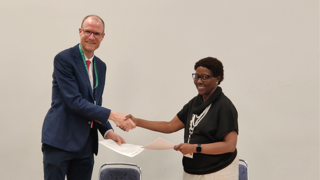
Do you have any advice for someone wanting to go into your field?
"Don’t be fooled into thinking that you have to study biology to make it as a conservationist. If anything, there are too many biologists working in conservation!
"The field needs people with a much wider range of skills, including law, economics, anthropology, communications and, of course, geography.
"Best of all is to take an inter-disciplinary course that will help you to become the kind of holistic, systems thinker that is needed to address the complex problems associated with biodiversity loss."
What legacy do you hope you’ll leave?
"Conservation is a difficult field to work in, with very good reasons to be upset and anxious about our shared future on this precious planet.
"I hope I will leave an inclusive network of people who support each other in their professional and personal lives as they navigate these challenges, and a sense that positive change is possible."
Sign up to our newsletters
We regularly host exhibitions as well as in-person and online events, including our Monday night lectures (members only) and regional events.
Would you like to stay up to date about our upcoming events and news? Log in, or create an account, and sign up for our newsletter.
